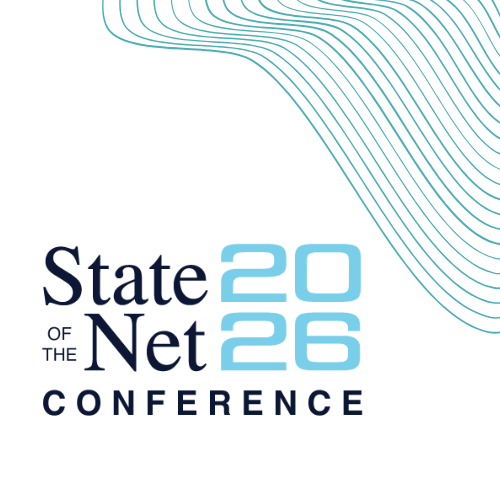Decoding the Hype Behind Artificial Intelligence
Back To News
Glen Echo Group Senior Associate Lama Mohammed leads a training for high school girls as part of a summer program on national security
Over the past several months, AI has dominated the tech policy landscape and forever changed how we learn, work and live. The technology has been met with both frenzied fear and excitement, creating a hype that limits the meaningful discussions and careful considerations we desperately need. Everyone―including major tech companies, policymakers and individual internet users―is looking for help navigating this new technology.
With this context in mind, AI was the thematic focus of this year’s Girl Security x Argo Community High School Summer Program, a weeklong training on various facets of national security offered to Chicagoland students interested in pursuing a career in the field.
Glen Echo Group client Girl Security is a non-partisan, non-profit organization preparing girls, women, and gender minorities for a career in national security through transitional and relationship-based programming, starting in high school.
Of note: Argo Community High School is a public high school in Summit, Illinois, a western suburb of Chicago, which serves a diverse population of students and has a rich history. In fact, it is the school that Emmett Till would have attended in the fall of 1955.

During the July program, students learned various ways AI impacts society and explored the role our own experiences play in shaping the perspectives we carry into national security work. Sessions covered AI policy and governance, deepfakes, global affairs, legal analysis, the future of AI and more. Glen Echo Group Senior Associate Lama Mohammed facilitated the first session of the week, titled "AI 101: Decoding the Hype Behind Artificial Intelligence," which explored foundational concepts of artificial intelligence and myth-busted common AI misconceptions.
Lama framed her presentation in the context of social justice, using real-world examples (like use cases of deploying facial recognition technology at high schools or AI tools assisting in communication for students with disabilities) to give the students a better understanding of technology’s role in their day-to-day lives.
“Connecting something as complex as AI to everyday life and issues found within society makes these issues more human, tangible and real for us to grasp and think about creative ways to institute public interest in the creation of these technologies,” she reflected.
To start the session, “I asked the students to share how AI made them feel,” said Lama. “I expected a majority of them to share that AI made them fearful or afraid for the future, but there was an equal balance between those who were hesitant about the technology, did not have an opinion about it, and those who were excited about the future of AI.”
Here are a few other takeaways from her presentation:
- AI is versatile―it’s more than what we see on TV, and it’s more than “ChatGPT,” “LLMs,” and other buzzwords. It mimics “human-like” behavior to problem solve and aid users, whether it is to unlock a phone or detect and mitigate cyber attacks. It is more than what we see on TV…but it will not wipe out the human race.
- Artificial intelligence offers enormous societal benefits, like enhancing work and education. It also comes with potential negative consequences, including disinformation, wrongful arrests, and predictive policing. Ethical tension exists around AI, such as bias, surveillance, and trust and safety violations. Staying in-the-know and equipped with industry knowledge is going to be important for future generations to tackle these issues head-on.
- Looking into the future of AI, we can predict some trends: the increased use of AI for cybersecurity, the continued growth of generative AI, and greater international regulation efforts around the technology.
“I emphasized throughout my presentation that when navigating technology issues, it is important to remember that technology is not neutral. Technology, because it is created and used by humans, will almost always contain some type of bias, whether it is racial, gender, or ability bias. It is therefore the responsibility of technologists to create and institute pipelines that enhance diversity and inclusion at the beginning of product design and testing,” said Lama.
The Glen Echo Group is deeply invested in AI’s responsible development, and in helping engage and educate our clients about a technology that is changing rapidly.
Follow our Summer of AI series as we explore many of the issues surrounding the technology that will be the focus of policymakers in the months ahead. We’d love to hear from you as you’re thinking about artificial intelligence, so please reach out to us and share your thoughts.


.png)

.png)